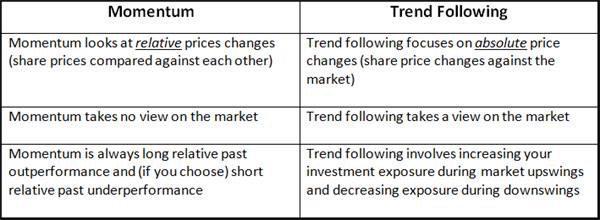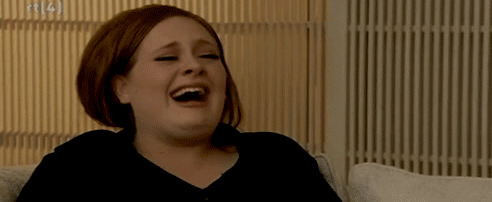
Momentum trading vs. Trend Following.


“[Michael Marcus] also taught me one other thing that is absolutely critical: You have to be willing to make mistakes regularly; there is nothing wrong with it. [He] taught me about making your best judgment, being wrong, making your next best judgment, being wrong, making your third best judgment, and then doubling your money.”
– Bruce Kovner, Market Wizards
Bruce Kovner, now retired, is one of the all-time trading greats.
His observation is strikingly similar to the Soros observation (paraphrase): “It doesn’t matter how often you are right or wrong — what matters is how much you make when you are right, versus how much you lose when you are wrong.”
In many ways trading is remarkably different from any other profession. Imagine if doctors, lawyers, or company executives were encouraged to “make mistakes” on a regular basis. (They do make mistakes of course. They just can’t admit them, let alone be open about them.) (more…)
Phone :Cordless Cooking :Fireless Food :Fatless Dress :Sleeveless Youth :Jobless Leaders :Shamless Govt :Hopeless Job :Thankless Police :Clueless Policies :Aimless Conduct :Worthless Relations :Meaningless Attitude :Careless Feelings :Heartless Education :Valueless Arguments :Baseless Days :Restless Nights :Sleepless Future :Directionless & Still the expectations are ENDLESS ! |
1. OPTIMISM – It all starts with a hunch or a positive outlook leading us to buy or sell.
2. EXCITEMENT – Things start moving our way and we get excited. We start to anticipate and hope that a possible success story is in the making.
.
3. THRILL – The market continues to be favorable and we just can’t help but start to feel a little “Smart.”
At this point we have complete confidence in trading system.
4. EUPHORIA – This marks the point of maximum financial risk but also maximum financial gain. Our investments turn into quick and easy profits, so we begin to ignore the basic concept of risk and now start trading anything that we can get our hands on to make a quick buck.
5. ANXIETY – Oh no – it’s turning around! The markets start to show their first signs of taking your “hard earned” profits back. But having never seen this happen, we still remain ultra greedy and think the long-term trend is higher.
6. DENIAL – The markets don’t turn as quickly as we had hoped. There must be something wrong we think to ourselves. Our “long-term” view now shortens to a near-term hope of an improvement.
7. FEAR – Reality sets in that we are not as smart as we once thought. Instead of being confident in our trading we become confused. At this point we should get out with a small profitand move on but we don’t for some stupid reason.
8. DESPERATION – All gains have been lost at this point. We had our chance to profit and missed it. Not knowing how to act, we attempt to do anything that will bring our positions back into the black.
9. PANIC – The most emotional period by far. We are clueless and helpless. At this stage we feel like we are at the mercy of the market and have absolutely no control.

A mathematician, an accountant and an economist apply for the same job.
The interviewer calls in the mathematician and asks “What do two plus two equal?” The mathematician replies “Four.” The interviewer asks “Four, exactly?” The mathematician looks at the interviewer incredulously and says “Yes, four, exactly.”
Then the interviewer calls in the accountant and asks the same question “What do two plus two equal?” The accountant says “On average, four – give or take ten percent, but on average, four.”
Then the interviewer calls in the economist and poses the same question “What do two plus two equal?” The economist gets up, locks the door, closes the shade, sits down close to the interviewer and says “What would you like it to equal?”
 “If a betting game among a certain number of participants is played long enough, eventually one player will have all the money. If there is any skill involved, it will accelerate the process of concentrating all the stakes in a few hands. Something like this happens in the market. There is a persistent overall tendency for equity to flow from the many to the few. In the long run, the majority loses. The implication for the trader is that to win you have to act like the minority. If you bring normal human habits and tendencies to trading, you’ll gravitate toward the majority and inevitably lose.”
“If a betting game among a certain number of participants is played long enough, eventually one player will have all the money. If there is any skill involved, it will accelerate the process of concentrating all the stakes in a few hands. Something like this happens in the market. There is a persistent overall tendency for equity to flow from the many to the few. In the long run, the majority loses. The implication for the trader is that to win you have to act like the minority. If you bring normal human habits and tendencies to trading, you’ll gravitate toward the majority and inevitably lose.”